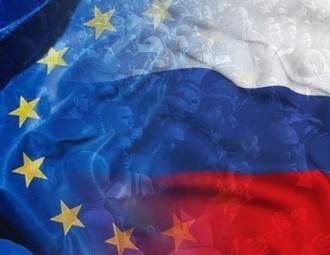Opinion: Eastern Partnership Countries at the Crossroads

Few years ago Russia, Belarus and Kazakhstan came up with a Customs Union. 3 years earlier Poland and Sweden launched EU’s EaP initiative; now Russia is pushing EaP countries to join Customs Union.
In 2008 Poland and Sweden launched the European Union’s Eastern Partnership initiative. Its aim was to provide a venue for discussions on trade and other issues with the former Soviet Union states of Armenia, Azerbaijan, Belarus, Georgia, Moldova and Ukraine with the prospects of concluding Free Trade Agreements, liberalizing visa regimes and embracing other forms of closer cooperation. In 2011 Russia, Belarus and Kazakhstan came up with a rival idea of establishing the Eurasian Union and in 2012 established a Customs Union comprising these three countries. Russia has recently been pushing the Eastern Partnership countries other than Belarus to join the Customs Union. In August it introduced temporary extra checks on imports from Ukraine (Reuters). More recently imports of Moldovan wines and spirits have been banned by Russia (Nielsen). Armenia has apparently already given in to this pressure (The Moscow Times). Ahead of the Vilnius Summit at the end of November the Eastern Partnership countries face the fundamental choice whether to proceed on the path of deeper trade integration with the EU or join the Customs Union led by Russia (the options are mutually exclusive).
To answer the question, which of the two roads offers the most promising prospects for the Eastern Partnership countries, it is first worth looking at the past experience of those countries in the Central, Eastern and Southern Europe that have chosen the path of integration with the European Union and are now members of the EU. Then this experience can be compared with the record of the current Eastern Partnership countries.
Let’s start with the new EU member states. With Romania and Bulgaria having joined in 2007 and Croatia being taken on board in July of this year there are 13 of them (the other 10 joined in 2004). We have looked at how successful these countries have been at closing the income gap with the richest EU member states. As the country for benchmarking we have selected Germany, a large and diversified high income economy. We have looked at how the PPP-adjusted GDP per capita has changed in the new EU member states relative to Germany from 1995 to 2012.
1995 was the year when countries in Central and Eastern Europe had already left the shock of initial adjustment to a market economy behind them. Most of them started active integration efforts with the EU shortly thereafter, however, it took about a decade for these efforts to lead to actual membership. In addition, 1995-2012 is a period for which comparable data are available from the World Bank for all of the countries included in our analysis. This sample period also includes the shock coming from the Great Recession and the subsequent debt problems of several EU countries.
The convergence record of the 13 countries can be seen below:

There are four countries (Cyprus, Malta, Slovenia and the Czech Republic) where the relative income levels were already relatively high in 1995 (58% of the level in Germany or higher). These countries have achieved relatively little convergence with Germany since then. However, all of the other nine countries, whose PPP-adjusted GDP per capita in 1995 were at 40% of the German level or below, have seen substantial convergence with Germany. Hungary, the relatively worst performer, has seen its income relative to Germany increase from 40% in 1995 to 52% in 2012, while Lithuania has improved from 28% in 1995 to 58% in 2012.
Let us now look at how the Eastern Partnership countries have fared relative to Germany during the same period of time (please note the change of scale on the vertical axis):

All of these six countries in 1995 were poorer than the 13 EU member states analyzed above, but with the exception of Belarus and more lately Azerbaijan, they have failed to achieve much convergence with the German level of income. Moldova, the most extreme example, was at 7% of the level of Germany in terms of per capita GDP in 1995 and has improved just to 8% in 2012. From the convergence perspective we can clearly speak of a lost generation there. Armenia, Georgia and Ukraine have not performed much better.
Let us now add Russia to the picture (please note again the change of scale):

We can see that Russia, similarly to the nine current EU member states that started in 1995 at or below 40% of the German level of income, has also achieved substantial convergence with Germany. A detailed analysis of the reasons for Russia’s rapid convergence is beyond the scope of this post, however, oil and gas export revenues have certainly played an important role in it. However, what is equally obvious from the above chart is that while Russia’s convergence has been impressive, it has not helped pull Armenia, Georgia, Moldova and Ukraine along. Now these countries are facing the choice of whether to continue on the path of deeper integration with Russia or attempt closer integration with the EU instead. Armenia has already made up its mind, presumably because of other than economic considerations. Countries choose trading partners for many reasons, but based on income convergence, the choice in favour of the EU as the partner for deeper integration appears to be a no-brainer for Moldova, Georgia and Ukraine, despite potential short term shocks that it will entail.
According to EconoMonitor
Andris Strazds, Thomas Grennes
-
03.01
-
07.10
-
22.09
-
17.08
-
12.08
-
30.09








































